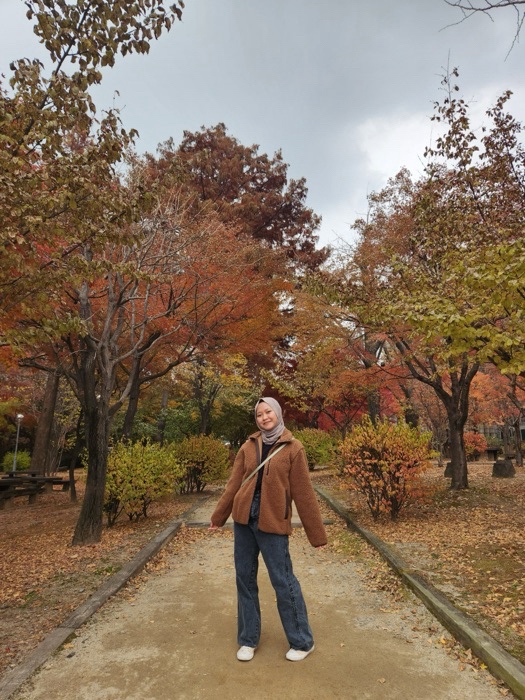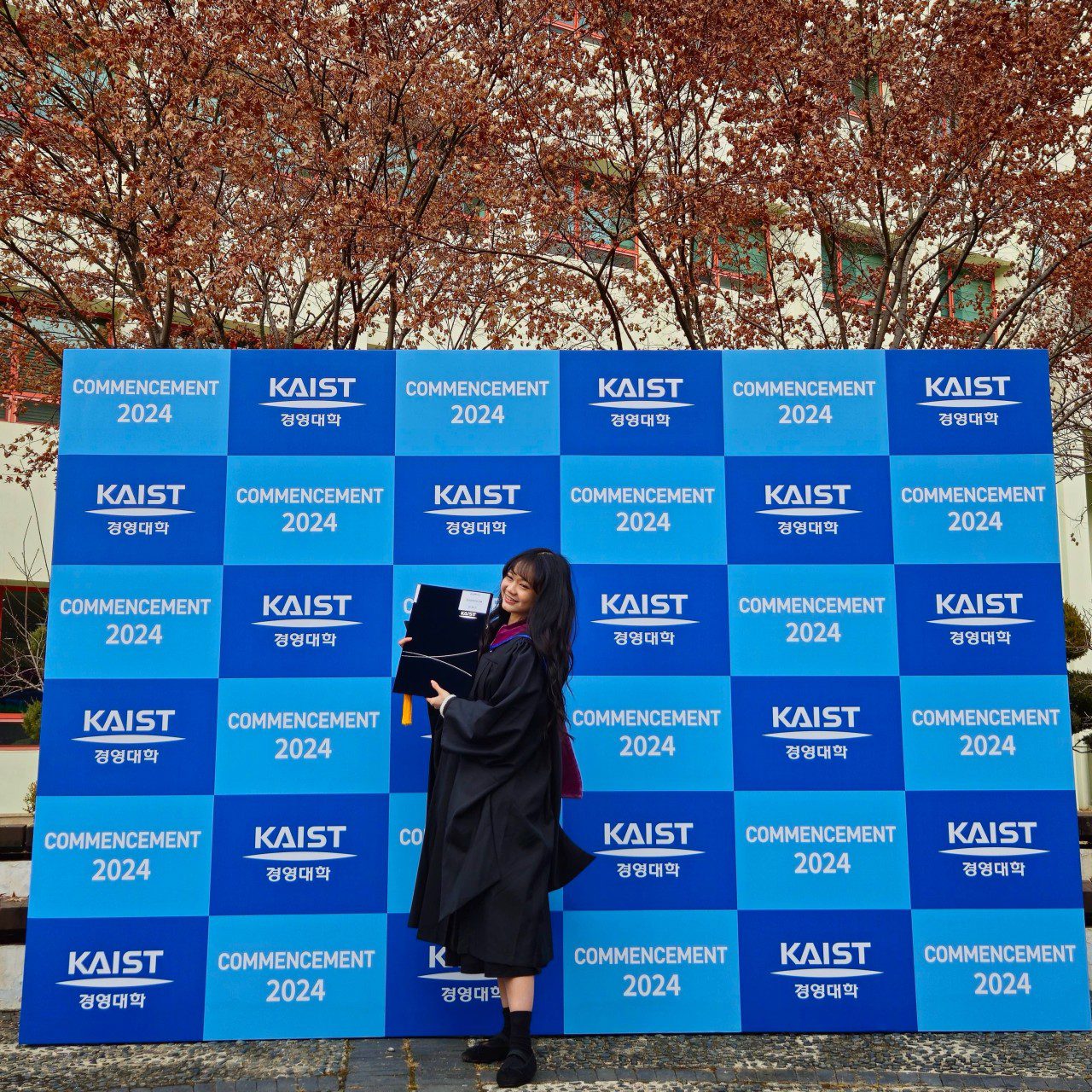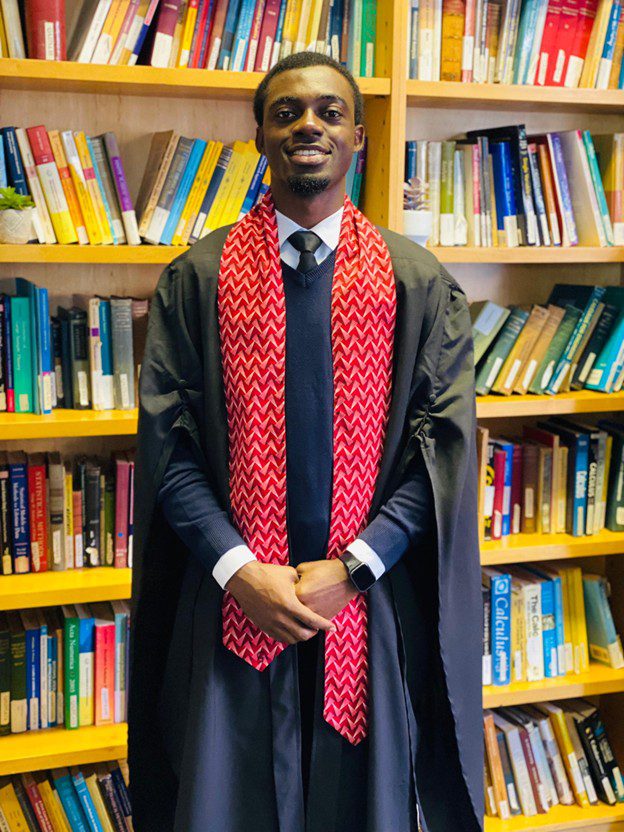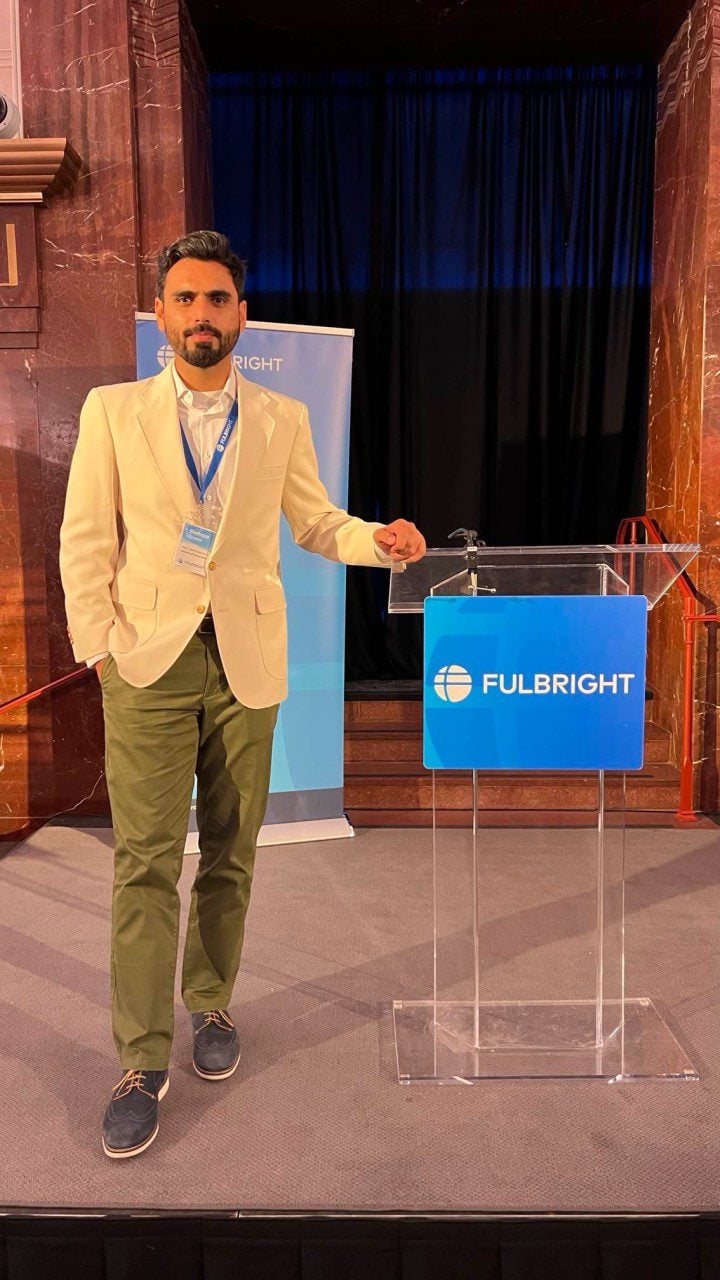How an Indonesian Physics Graduate Secured the Fully Funded Global Korea Scholarship to Study Radiation Convergence Engineering at Yonsei University
University: Yonsei University, South Korea
Degree: Master’s in Radiation Convergence Engineering
Previous Education: Bachelor’s in Physics – Diponegoro University, Indonesia
Scholarship: Global Korea Scholarship (GKS) – Fully Funded
Other Offered Scholarships (if any): Bridging Course Scholarship (Indonesian Ministry of Education)
Standardized Exams: IELTS – 7.0, TOPIK – Level 3

The Journey
I am Bella Naufal Wafa Nabila A, and I am from Indonesia. Currently, I am doing my Master’s degree at the Radiation Convergence Engineering Department at Yonsei University, South Korea, with the Global Korea Scholarship (GKS).
Global Korea Scholarship (GKS) Details
GKS is a scholarship from the Korean government to support international students studying in South Korea. Studying in South Korea means I have to be fluent in Korean since most classes will be held in Korean. This reason strengthened my decision to apply for the GKS-G program, since this program provides Korean language classes for about one year before going to the degree programs. This scholarship program also provides me with 14.100.000 KRW/year during my Korean language programs and 15.700.000 KRW/year during my degrees.
Education Background
I graduated from the Physics Department, Diponegoro University, Indonesia, with a specific interest in medical physics and graduated with a GPA of 3.7/4.0. I decided to go to Yonsei University and take the Radiation Convergence Engineering major, as this major's curriculum and laboratory really suit my interests and future goals.
How Did You Prepare to Apply to Yonsei University?
When I decided to study abroad, I started looking for scholarship information on social media platforms like Instagram and YouTube. I made a checklist of things I needed before applying, with English proficiency being a key requirement. To prepare, I studied independently and took IELTS preparation courses, ultimately achieving a score of 7.
Additionally, I benefited from the Bridging Course Scholarship, a program provided by the Indonesian Ministry of Education to help students prepare for studying abroad, especially in terms of scholarship applications and language proficiency tests.
Since my goal was to apply for a Korean scholarship, I also self-studied Korean and passed the TOPIK test (a Korean proficiency exam) with a level 3 on my first attempt. Most of my studies were independent, using ebooks, online resources, and YouTube videos.
How Did You Prepare to Apply for the GKS Scholarship?
Before applying for scholarships, I researched extensively about the scholarship options and their specific requirements. I noted several key factors, such as English proficiency, GPA, and the necessary documents. Among these, I found English proficiency scores and essays to be the most critical. A strong English proficiency score clearly demonstrates your language abilities and can significantly enhance your application. Additionally, before writing my essays, I always conducted thorough research about the scholarship program and the university I intended to apply to.
What Do You Think Made Your Application Stand Out?
I think having IELTS and TOPIK scores made my application stand out. Since I will study in South Korea, where some classes will be taught in Korean, having TOPIK scores shows my seriousness to the scholarship provider. Additionally, according to the GKS guidelines, having a TOPIK or IELTS score provides additional points on our application.
However, language scores aren't the only reason my application stood out; I believe my essay was crucial in securing this scholarship. From my experience applying to many scholarships, writing an essay is not just about introducing yourself; it's about "convincing." It involves clearly communicating your future goals, highlighting your interests, and explaining what you plan to achieve with your degree. Therefore, understanding your own interests clearly before writing is essential.
The content of your essay should also attract readers. Everyone has their own story—use your unique stories as advantages. In my essay, I emphasized how my past experiences shaped who I am today, how these experiences led me to my interests, and how my current interests will help achieve my future goals.
What Would You Have Done Differently If You Were Going Through the Process Again?
I think I will focus more on how to make a good essay. After applying to several scholarships, I realized that a well-written essay cannot be done within a day. I need to do a lot of research to understand what I actually want to do after getting this scholarship and after graduating from my master's degree. I revised my essay from time to time to make it better and genuinely show myself.
What Advice Would You Give Those Looking to Apply for a Similar Scholarship?
If you're planning to study in South Korea, having basic Korean skills is important. GKS guidelines mention that providing proof of Korean or English proficiency can give you extra points, so if you have time, it's beneficial to take a language test and include your certificate with your application.
The essay is the most crucial part. You'll need to submit a personal statement and a study plan. Be sure to thoroughly research the GKS program and your intended university. It's also essential to reflect on yourself—understand your interests, clarify why you want this scholarship, and clearly state your future goals.
Want to submit your
scholarship journey?
Submit Your Story Here!
More Scholarship Recipients

My name is Vania Estrellita Soegiarto, and I am from Indonesia. I pursued a Finance MBA at KAIST Business School in South Ko .... Read more

Hello, I’m Toyeeb Olamilekan Abubakar from Nigeria. I earned a Bachelor of Science degree in Statistics from the Universit .... Read more

My name is Shehryar Jafar, and I’m from Karachi, Pakistan. I’m currently a PhD student in Electrical Engineering at the .... Read more

Leave A Comment